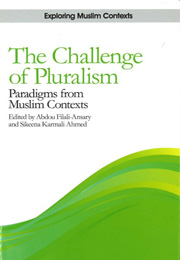2 - The Public and the Private in Middle Eastern History and Society
from PART ONE - THE HERITAGE: HISTORICAL CONTEXTS
Published online by Cambridge University Press: 12 September 2012
Summary
The theme of “public” and “private” has been widely discussed and debated in social theory as well as in feminist literature. The concept and distinctions between the two spheres are often found problematic. The notion of the “public sphere”, introduced by Habermas in relation to its postulated emergence vis-àvis bourgeois modernity in Europe, has proved popular in many sociological and ideological contexts, and thus has been “hijacked” from the very specific history stipulated by its author. A consideration of the debates relating to that theme would not be directly pertinent to the task in hand, which is to explore the shifting and problematic public/private distinction in various contexts in Middle Eastern histories and societies. I should, however, introduce what I believe to be a pertinent general point on “spheres”. Historically, both in Europe and the Middle East, we find “segmented” publics. Segmented in the sense of spaces and spheres, isolated from one another. Different elites, elites and masses, regions, religious and ethnic communities, distinct urban quarters and spaces. Modernity and modern media bring a common public space to which various actors and enunciators address their discourses and advocacies, thereby creating a space that is inherently pluralist.
Boundaries of Public and Private in Social and Spatial Locations
Historically, in Middle Eastern societies boundaries have been drawn in many spheres. The domestic sphere, for instance is normally considered the “private” par excellence.
- Type
- Chapter
- Information
- The Challenge of PluralismParadigms from Muslim Contexts, pp. 16 - 30Publisher: Edinburgh University PressPrint publication year: 2009



